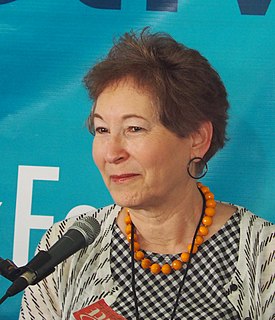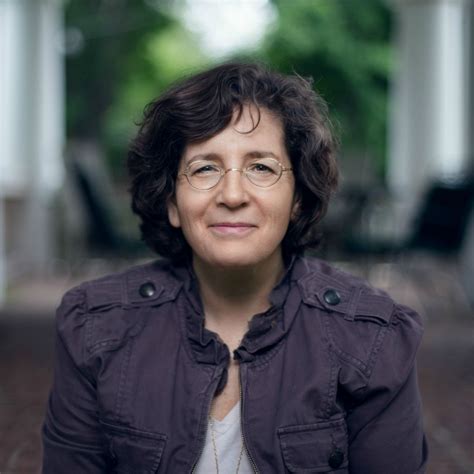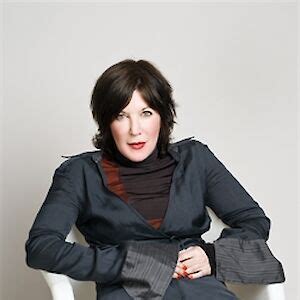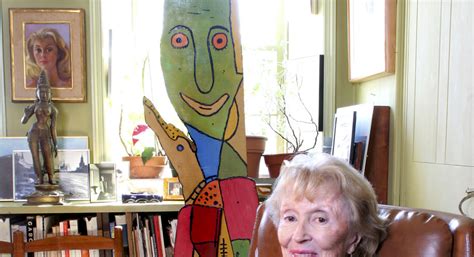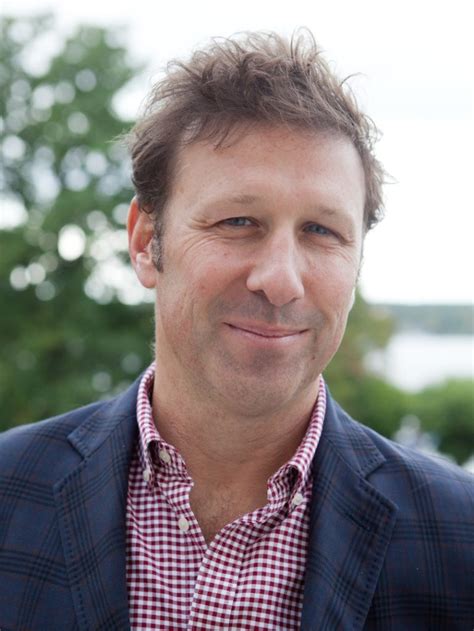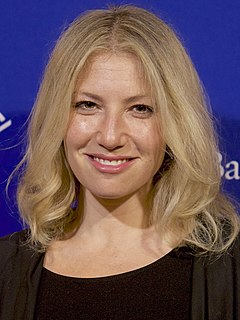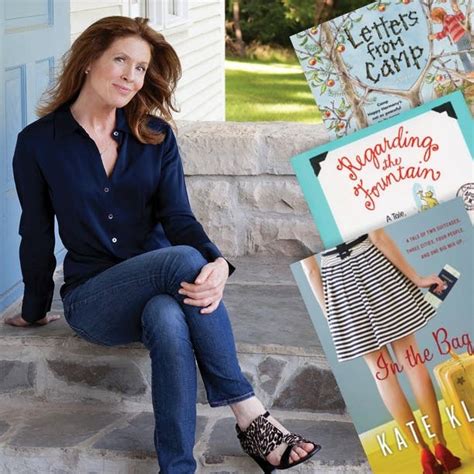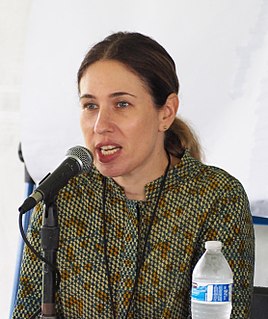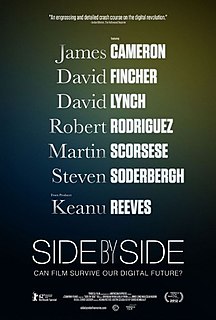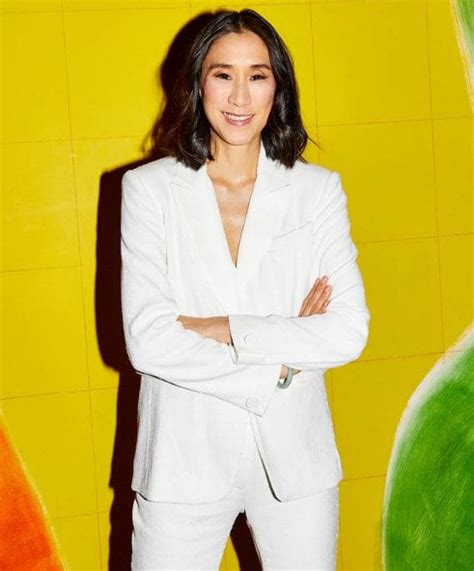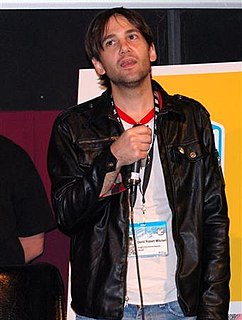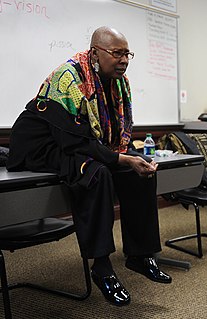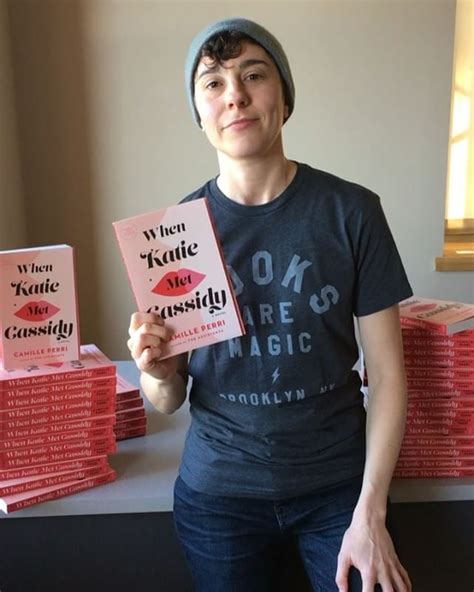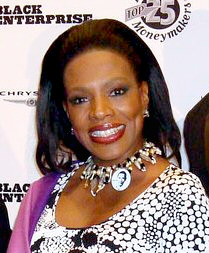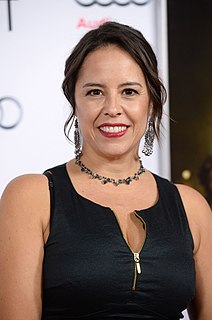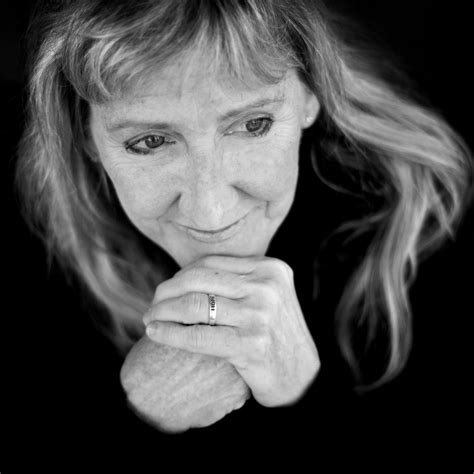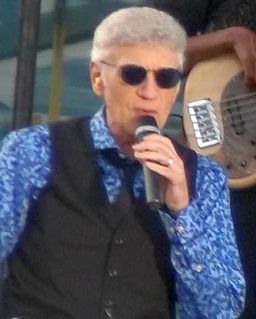Top 976 Editor Quotes & Sayings - Page 14
Explore popular Editor quotes.
Last updated on December 12, 2024.
June 17, 1972. Nine o'clock Saturday morning. Early for the telephone. Woodward fumbled for the receiver and snapped awake. The city editor of the Washington Post was on the line. Five men had been arrested earlier that morning in a burglary attempt at Democratic headquarters, carrying photographic equipment and electronic gear. Could he come in?
When an editor works with an author, she cannot help seeing into the medicine cabinet of his soul. All the terrible emotions, the desire for vindications, the paranoia, and the projection are bottled in there, along with all the excesses of envy, desire for revenge, all the hypochondriacal responses, rituals, defenses, and the twin obsessions with sex and money. It other words, the stuff of great books.
There's this kind of incredibly mistaken idea that because it's so much cheaper to roll the camera than it used to be and it's so much easier to accumulate a ton of footage, that then you can just go shoot a ton of footage and the editor will make sense out of it. But if you don't have something deliberate made, you're not gonna save it in the editing room.
There's a way of thinking that comes with being an editor that is incredibly useful on the set. It's not just a vocabulary thing or a right-to-left thing or script supervisor stuff. It's a way of thinking about the film and the shots and the way they fit together, what you need and what you don't need, and what you can get away with if you have to.
The truth is, an actor's performance is the result of work by a lot more people than just the actor. When you see that character portrayed up on screen, there is the work certainly of the actor, but there's the work of the editor, there's the work of what the camera was doing. What the music was doing, all of the above.
I never saw myself as a director. It's certainly a second language but making movies for 40 years, you pick stuff up. However, this style of making movies, this documentary style, is easier for me because I gather a lot of material and with an editor, write it on screen. You try to write based on what you shot.
Before MS moved in on me, I'd worked for seven years as a city lawyer, as the editor of a literary magazine, and before the age of 20, I'd also worked as a cadet journalist and as an assistant director in both film and TV. And then, after the lesions of MS, both on my spine and in my brain, I was the opposite of bionic.
I was just reviewed by Robert Gottlieb, who was my editor at 'The New Yorker,' and he sort of wondered at the fact that I still need to exorcise my parents at my age. I think he makes a basic mistake in thinking that exorcism can ever be total. The exorcism of your parents will still be occurring on your own deathbed.
As a book editor, you need to pitch every one of your books again and again, dozens of times, for months on end. From a quick conversation with your boss or a letter that'll be read by just one person, to a five-minute speech in front of 50 colleagues or cover copy that'll be in front of millions of eyes.
The best compliment came from Knopf's Sonny Mehta. We were at lunch in New York with my editor, Gary Fisketjon, it was my first time meeting Sonny, and after ordering our food, he turned to me and said, 'Adam, I read 'Mr. Peanut' in two days; every page surprised me, and that, I can assure you, doesn't happen often.'
'Freakonomics' began with a 'N.Y. Times Magazine' profile I wrote about Steve Levitt. I was working on a book about 'the psychology of money,' and since Levitt's an economist, my editor thought I'd be the guy to write about him. Fact is that Levitt has almost no interest in either psychology or money.
I received a letter from a lad asking me for an easy berth. To this I replied: You cannot be an editor; do not try the law; do not think of the ministry; let alone all ships and merchandise; abhor politics; don't practice medicine; be not a farmer or a soldier or a sailor; don't study, don't think. None of these are easy. O, my son, you have come into a hard world. I know of only one easy place in it, and that is the grave!
I joined the 'Times' in 1972, and I came with the mark of Cain on me because I was clearly against the war. But my editor, Abe Rosenthal, he hired me because he liked stories. He used to come to the Washington bureau and almost literally pat me on the head and say, 'How is my little Commie today? What do you have for me?'
I just typed up three, four paragraphs of an idea and dropped it in a box at the Chicago Comic Con in the summer of 2000, I guess, or 2001 - I forget. I just dropped it on a stack of a giant pile of dozens of other entries. Months later, I was thrilled to get a call from a Marvel editor while I was working my crappy day-job.
My aunt was Frances Hodges, who in the Fifties was the editor of 'Seventeen' and later one of the creators of 'Mademoiselle.' She was my Auntie Mame; she loved culture. She was a Quaker, but she became a milliner against all Quaker logic - they feel that fashion and art are vanities - because she loved fashion.
I was co-editor of the magazine called The Jazz Review, which was a pioneering magazine because it was the only magazine, then or now, in which all the articles were written by musicians, by jazz men. They had been laboring for years under the stereotype that they weren't very articulate except when they picked up their horn.
When I was a book editor, I got used to being told that my tastes were dark or edgy. These are not words that would've occurred to me, but I was told that enough that I have to believe it's true - that I like things that some other people find off-putting or upsetting. My job is to publish stuff that I really, really care about. That might mean that it doesn't sit well with everybody.
It's a fascinating time, I think. I do believe that with all the qualifications I've said - [such as] the uncertain accuracy of the web - nonetheless the access to speeches, documents is unparalleled with the ease of gathering information. If I had had that access when I was an editor or coming up, it would have made my life so much easier. As it was, everything took so much longer.
PERFECTION, n. An imaginary state of quality distinguished from the actual by an element known as excellence; an attribute of the critic. The editor of an English magazine having received a letter pointing out the erroneous nature of his views and style, and signed "Perfection," promptly wrote at the foot of the letter: "I don't agree with you," and mailed it to Matthew Arnold.
Frequently, an author gets "orphaned" at a publisher. What this means is that an editor buys their book, then ends up getting fired, promoted, or transferred to a different job somewhere else. It sucks for the author because suddenly the person who liked your book enough to buy it isn't around to help you edit and promote it.
In stand up every joke is thought about so meticulously, and one word can completely change how the audience responds. You're up there with no safety net; you can't shirk responsibility. It's your thoughts; it's your voice. You can't blame it on the writing, you can't blame it on the editor. You are just up there completely naked.
The smartest thing I ever did as a writer was hire a retired conservation agent to blaze a hiking trail for me. It's nothing fancy - just a narrow path that meanders for a little over a mile through the woods near my home. But that trail through the trees has become my therapist, my personal trainer, and my best editor.
In the first night of the Arvon Foundation course, Elspeth Barker said something about the newspaper along the lines of - and I'm paraphrasing - "I do these pieces for them and it's amazing, because I don't type it out, I just fax it as it is, and the literary editor has a machine that can transform my handwriting into typed text." At which point I put my hand up and said, "Actually, I'm that machine."
I write with the idea that nobody will care about what I've written; I publish with the idea that nobody will care either. Which is why every time somebody cares enough to read a novel of mine, or respond to it - a reader, a reviewer, even my own editor - I'm a little bit amazed, and so hugely grateful.
I didn't grow up with [Buckminster Fuller]. I never met him. I was once close to meeting him as a child at a ski resort one summer. He died in 1983. Only in 1999 or so, 2000, when I was working as an editor at San Francisco Magazine, did I really come back around to that name because Stanford University had just acquired the archive.
I'm an indulgent writer - I'm not sure, however, that's something I'm interested in changing. Writing should be indulgent: you should take big risks on the page, you should make big mistakes, you should be excessive at times. I let myself do as a writer what I probably would be less likely to allow as an editor.
'Brown Girl Dreaming' was a book I had a lot of doubts about - mainly, would this story be meaningful to anyone besides me? My editor, Nancy Paulsen, kept assuring me, but there were moments when I was in a really sad place with the story for so many reasons. It wasn't an easy book to write - emotionally, physically, or creatively.
I treat my writing like a day job, like my main job, even if for many years I was doing other jobs to pay the bills. I worked as a copy editor. I was a medical guinea pig. I was an eBay power seller of ladies' handbags. I was an assistant to a bookie at the horse races. I bartended. I did anything I could to make ends meet.
I read The Vegetarian and fell in love with it. A year later, I was invited to go and speak at the London Book Fair (which I'd never even heard of before), as they were gearing up for Korea being the market focus country in 2014. I met Max Porter there, Kang's editor at Portobello, sent him my sample, and the rest is history.
You could be an 18-year-old girl in Tokyo wondering how you could ever break into fashion or beauty, so you follow your favourite designer or editor, see what their day comprises, where they go, who they meet, how they do it... If I were setting up my own label today, I would definitely do it through Instagram.
A writer can spend a decade working obsessively on a novel, but in the commerce of publishing, many of the most important decisions about any book will be made based on very short pitches - from literary agent to editor to sales rep to bookstore buyer to a potential reader standing in the bookstore, asking, 'What's it about?'
It's just about having faith in what I wrote and following through on the plan and making sure I get the pieces the way that I need them. It's just about executing properly in production and then in post, you know, it's working [with] and trusting my editor, and then also playing the film for people and seeing how they react.
Nothing can now be believed which is seen in a newspaper. Truth itself becomes suspicious by being put into that polluted vehicle... Perhaps an editor might begin a reformation in some such way as this. Divide his paper into four chapters, heading the 1st, Truths. 2d, Probabilities. 3d, Possibilities. 4th, Lies. The first chapter would be very short.
My wonderful editor, Jackie Onassis, asked me to write a book that I wanted to write. I said, 'Look, it's not going to be scandalized. I'm not going to talk about anybody like a dog. I'm going to say the positiveness of my life, and talk about those who have contributed to the way I've been going, and that's that.'
I was the assistant to the editor-in-chief of 'Esquire Magazine.' And my experience as an assistant was really best case scenario. My boss was absolutely the greatest boss I could have asked for. But I think there's something universal about being an assistant, regardless of whether or not your boss is the greatest or a complete terror.
I'm a writer, not an editor, and though the editing rarely cut into my writing time, it did take away from that walking-around-thinking-about-it-when-you're-not-thinking-about-it time that I think is important for writers. When you're half-thinking about what you're working on while driving, cooking . . . just letting things sift and settle, come to you.
I can be a fairly hands-on editor, and when I'm editing someone I feel intensely invested in that writer and her work. I love helping to shape a book, and I feel very privileged to get to do that with writers I'm excited about. I think doing that work for the past six years has changed me, and it better prepared me for the questions and suggestions.
My editor and I remain very disciplined. It's just sometimes when you're making a film, you get into the cutting room and you see a scene that's slowing you down in a certain section, but if you remove that scene then, emotionally or story-wise, another scene a half-hour later won't have the same impact. You just get stuck with it.
Over the years since I became a Christian, I have always deliberately explained that I have 'accepted Jesus Christ.' These words are invariably translated into 'Colson's professed religious experience.' I discovered that one major U.S. daily, as a matter of policy, will not print the two words Jesus Christ together; when combined, the editor says, it represents an editorial judgment.
I love, love, love live performance. It's like walking a tightrope without the net. You better be on point; you better be balanced. You better have rehearsed it and seen it from every vantage so you can do what you do best. I do love film because it's up front in your face, and hopefully you've got a great editor.
Michel duCille has been an editor of indelible integrity, decency, and a deep sense of humanity. Michel stood by me during the highlights and shadows of my life. We began our careers together as interns at 'The Miami Herald.' His photography over the years embodied the concerned journalist, which carried over to his work in management.
I write about people I think are interesting, and then I discuss it with my editor, and she decides if she thinks it will be interesting to children as well. If I have no great interest in the subject, I find the work to be terribly boring. And if I find the person interesting, I love the research part and, by extension, the writing as well.
